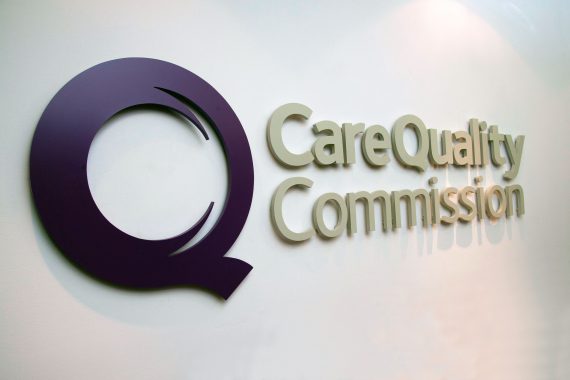GP practices will be expected to provide information to the CQC every year on how they plan to improve the quality of care, under new proposals released today.
The regulator’s consultation document on the next stage for inspections says that the annual information gathering will replace the current system, where GPs have to provide evidence for every inspection.
Under the new regime, practices will need to provide annual evidence on what changes have occurred in the past year affecting their quality of care, with examples of good practice and ‘effective and responsive care to each of the population groups’.
It says that this will allow GPs to ‘demonstrate an open culture’ and that they ‘are taking responsibility for assuring the quality of care they provide’.
GP leaders say this represent a major increase in workload for practices, who previously had to provide information only when they were being inspected – which will be every five years for the 91% of practices rated ‘good’ or ‘outstanding’.
The consultation, released today, says: ‘We will replace the existing provider information return with an annual online information collection. We will ask providers for information every year rather than as part of the preparation for an inspection, and will encourage them to keep it up to date.
‘This is one way that providers can demonstrate an open culture and that they are taking responsibility for assuring the quality of care they provide.’
It says that examples of the information they will be collecting include:
- What has changed about the quality of care provided over the last year and what plans they have to improve;
- Examples of good practice; and
- How they provide effective and responsive care to each of the population groups.
Dr Robert Morley, chair of the BMA GP Committee’s contracts and regulation subcommittee, said: ‘My first impression of this is that it is going to add to the reporting burden to CQC, and the overall burden. So that’s certainly a concern.
‘What we don’t want to do is reduce frequency of inspections for the majority of practices, with an even larger burden of data collection. They say that’s what they want to avoid, but we have to hold them to account for that.’
Meanwhile, as it stands, the CQC cannot announce it is planning enforcement action against a practice until any appeals or evidence submitted by the practice has been considered but the consultation says it wants to change this.
The document says: ‘In future, we want to be more transparent with the public when we are taking enforcement action by publishing the details sooner. We are working with the Department of Health on this issue.’
Dr Morley said: ‘It’s all very well to be transparent, but if it has adverse consequences for practices that would be unacceptable.
‘If something goes into the public domain based on factual inaccuracy or error on the part of CQC and before practices have challenged it, what will hit the headlines will be the move to enforcement action – rather than any successful appeal.’
The consultation further proposes to go ahead with plans for the new ‘GP Insight’ system of monitoring local changes to quality, the CQC’s successor to the flawed ‘intelligent monitoring’ programme. The GPC has voiced ‘significant objections’ about the new system, which will draw on data including social media posts.
But the consultation says that the CQC ‘will use this information to plan when and what to inspect and include it as part of the evidence in our inspection reports’.
The CQC also proposes that:
- Practices that have been rated requires improvement will have to provide a written report on how they plan to improve. If they are rated requires improvement on three inspections in a row this will trigger a Management Review Meeting and could lead to enforcement action;
- Cutting down the number of inspection criteria by only requiring practices to demonstrate how they apply the CQC’s key questions to all six patient groups for the ‘responsive’ and ‘effective’ domains;
- Work to bring non-NHS GP providers, and the increasingly common providers of online GP services, in line with the CQC’s inspection regime;
- New process for inspecting practices who are part of new, multi-provider models of care (which could see hospitals, practices and community trusts working as a single or cooperative entity) with the bulk of regulatory burden falling on a single nominated provider in the system; and
- Making reports shorter, less repetitive and more easily accessible for the public and ensuring at least 90% of reports are published within 50 days – a target the CQC has so far failed to hit.
Stakeholders can respond to the consultation until 8 August.
Pulse October survey
Take our July 2025 survey to potentially win £1.000 worth of tokens














